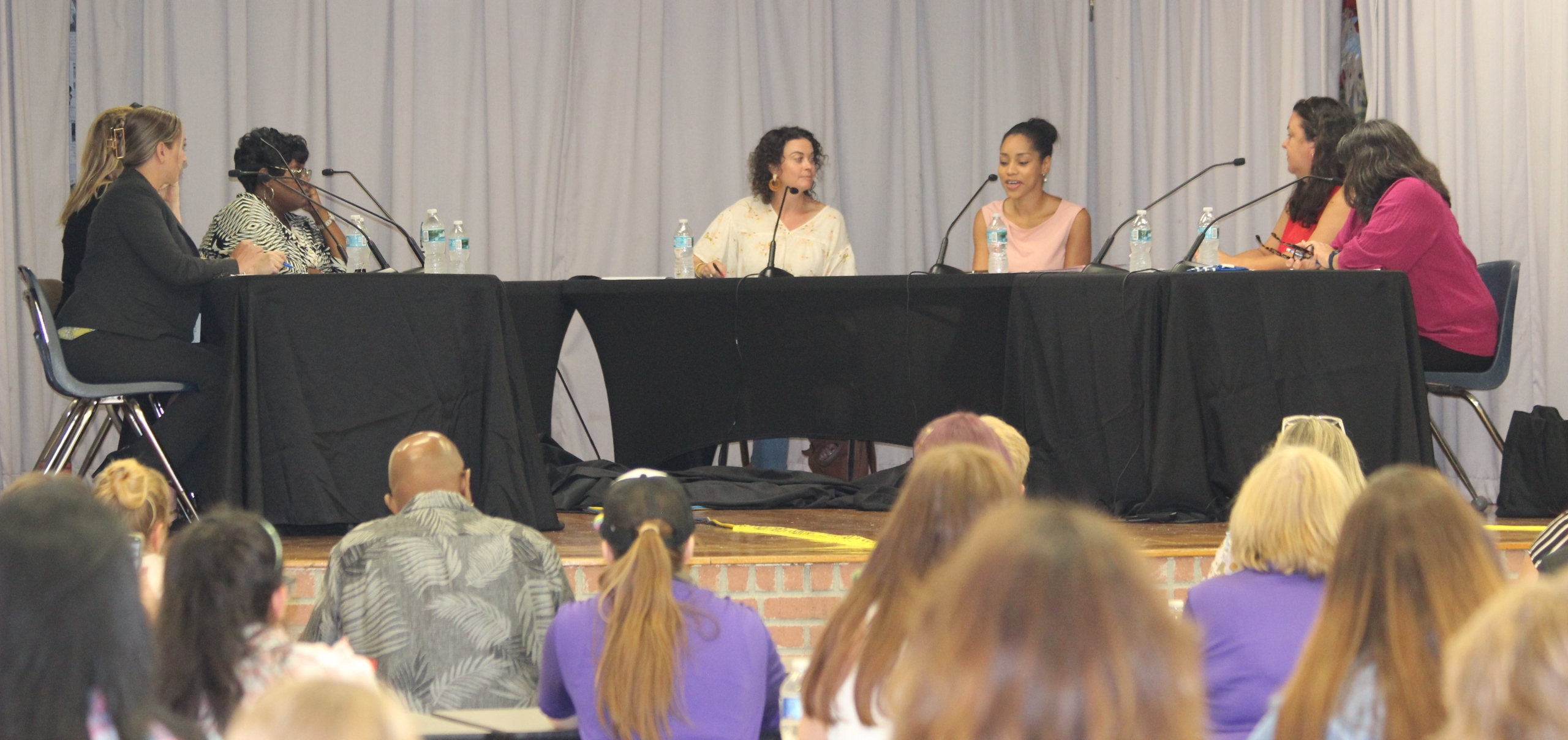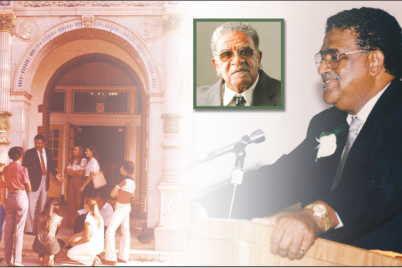The North Shore Elementary School-Based Instructional and Media Review Committee declared Disney’s ‘Ruby Bridges’ film is appropriate for K-5 students.
BY GOLIATH J. DAVIS, III, Ph.D.
ST. PETERSBURG — On April 3, the North Shore Elementary School-Based Instructional and Media Review Committee met to review and rule on a complaint filed by parent Emily Conklin, who protested the showing of Disney’s 1998 “Ruby Bridges” film to second-grade scholars, even though she was allowed to opt her child out of the showing. All of the second-grade parents, except two, returned consent approval forms.
The seven-member committee was comprised of teachers, parents, community representatives and a union member. Two of the members were African American. Time was allotted for Mrs. Conklin to address her objection, but she did not appear at the microphone when called. The second-grade team responsible for the lesson and the district’s content specialist were also allotted time.

The seven-member committee was comprised of teachers, parents, community representatives and one union member.
The presentation by the second-grade team was quite informative and provided a compelling rationale for why the film was selected. The team members worked independently to research their single topic utilizing multiple sources. “Ruby Bridges” was chosen because she was six years old and relatable to second graders. The movie had several teachable points, including perseverance, contributing to a strong community and utilizing your voice for change.
The district’s content specialist addressed issues related to state standards and curriculum. Her research revealed the lesson and the film aligned with state standards regarding teaching African-American history in three areas: prejudice, vital African-American contributions and how individual freedoms have been infringed upon by segregation. Ruby’s bravery was also a central teaching point.
Committee members discussed their overall impressions and a host of other issues, including the movie and lesson’s educational value, age appropriateness and whether or not the film and lesson adversely impacted students within the broader context of race, ethnicity, socioeconomic status, and diversity. Their responses were thoughtful, heartfelt, researched, and personal.
One member consulted American Psychological Association literature and reported that given some preschoolers may have already developed racial beliefs in other settings, the movie and lesson are age appropriate. More importantly, the member stated her review of the movie revealed it did not teach hate. Instead, the film displayed ugliness and intolerance, and what better place to address it than inside a classroom?
A parent committee member watched the movie with her children and found it to be a “good opener” to conversations with her kids about doing things that are hard and standing up for what you believe. Parent members also indicated they had total confidence in the second-grade teachers and complete confidence in their ability to add and utilize appropriate supplemental materials.
In direct response to the complainant’s grievance, the committee found the movie teaches inclusion, all its content is appropriate for K-5, processes and policies already exist, and the school followed them. In a unanimous vote, the committee decreed the lesson was appropriate and the materials, including the film, should continue to be used at North Shore Elementary.
As a participant, I was impressed by the committee’s professionalism, preparation, and efficiency. As I indicated in other columns, the school and the second-grade team did everything correctly. While the complainant had the right to opt out, she did not have the right to decide for most of the parents who signed the consent form, nor was she qualified to assign the film to eighth graders.
The district will not acknowledge the film was banned despite evidence to the contrary. In an email, a high-ranking district administrator told the complainant the film would no longer be utilized in the K-5 curriculum. Superintendent Kevin Hendrick wrote in his guest column for the Tampa Bay Times that the film was never banned.
Instead, he asserts there was an error in communication and timing. Regrettably, this statement was not immediate or forceful, and consequently, its delayed submission contributes to considerable doubt.
I remain committed to my initial proposition: the film was banned, and the ban was subsequently lifted first by the superintendent in his April 1 column and reinforced today by the review committee who affirmed the school’s behavior, and considered the complainant’s right to advocate for her child.








